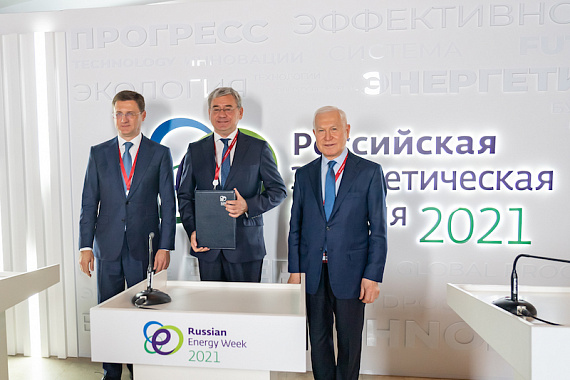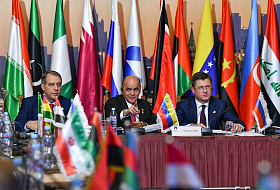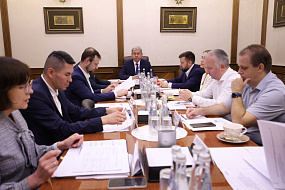Russian Energy Agency, Moscow State Institute of International Relations, and International Institute for Energy Policy and Diplomacy Sign Agreement on Cooperation in Science and Education

The
Russian Energy Agency (REA) of the Russian Ministry of Energy, Moscow State
Institute of International Relations (MGIMO) of the Russian Ministry of Foreign
Affairs, and the International Institute for Energy Policy and Diplomacy (MIEP)
of MGIMO have agreed to develop and implement joint educational programmes,
including for the purpose of training experts on low-carbon energy development
and the energy transition of the Russian fuel and energy industry.
The
agreement was signed by REA General Director Alexey Kulapin and MIEP Director
Valery Salygin in the presence of Russian Deputy Prime Minister Alexander Novak
during the first day of the Russian Energy Week International Forum.
The
main areas of cooperation include: the development of guidelines and practical
materials for a thorough examination of educational projects and programmes,
the organization of internships and thematic events, research and on-the-job
training as well as an information exchange.
As
part of cooperation at the international level, the agreement envisages assistance
in the implementation of projects and the expansion of partnerships, including
on such issues as sustainable development and energy transition. The parties
will devote special attention to expert support for activities at key
international energy platforms, including UN structures, and within the
framework of multilateral regional associations such as BRICS, the G20, and the
SCO. In an effort to strengthen Russian-French cooperation, the document calls
for organizing and holding events on sustainable energy development at the
Trianon Dialogue platform.
Kulapin
called the signing of the document a huge step towards joint fruitful work that
aims to develop scientific and technical cooperation as well as educational
activities in the energy sector.
“The
Russian market of continuing professional education currently lacks modern
training programmes for experts on low-carbon energy development, the energy
transition, and new technologies in the fuel and energy industry. The
implementation of the agreement will create conditions to eliminate this gap
and provide the energy sector with highly qualified specialists and the proper
level of scientific support,” he said.
For his part, Salygin noted: “We view one of the main goals of our interaction as enhancing the effectiveness of training on international energy cooperation, energy diplomacy, and geopolitics as well as international experts on new [types of] energy, including hydrogen. I firmly believe that through our joint efforts we will be able to achieve significant results and make a substantial contribution to further strengthening Russia’s position in the international energy community.”
The Russian Energy Week International Forum is being held in Moscow on 13–15 October. It was organized by the Roscongress Foundation, the Russian Ministry of Energy, and the Moscow Government.





